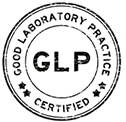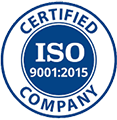
Phase I:
Safety assessment after evaluating the following parameters on normal, healthy volunteers.
Primary outcome measures: AEs, Ocular Comfort Index
Secondary outcome measures: Visual acuity, Epithelial defects – Fluorescein stain, green lissamine, conjunctival hyperemia, chemosis.
Phase II:
Safety and efficacy on a small population to evaluate and investigate the treatment effect on subjects with defined conditions.
Phase III:
Benchmark controlled safety and efficacy study on subjects with defined conditions.Large sample sizes.
These studies are designed in a scientific and robust manner and include ophthalmological examinations with a standard/ published scale along with instrumental imaging and high quality imaging to record visible differences. The study may also be combined with biological sample collection and analysis as required.

Age-related macular degeneration
Geographic atrophy
Blepharitis-15-20 per month
Cataract lenses- 20-25 per month,
Conjunctivitis[ viral/ bacterial/ non specific/infective/ allergic/ non-infective] Such as Ocular adenovirus infection
Contact lens solutions: Quality, tolerance and comfort
Diabetic macular oedema
Dry eye- clinical examination, quality and quantity of tear/ Intraocular lenses
Post-cataract surgery maintenance
Sjorgen’s syndrome
Glaucoma
Ocular burns- chemical injury
Corneal foreign body
Retinitis pigmentosa
Uveitis
Vitreous implants-costly implants [ A corrective treatment for diabetic macular edema]
Diabetic retinopathy
Acanthamoeba keratitis- Mostly seen in, contact lens users


Our team of 50+ trained professionals has extensive experience in managing clinical studies for sponsors across the world.
Our services include but are not limited to:





